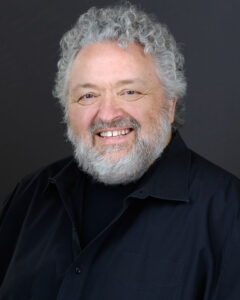
A six-part seminar series on global health and design that launched at York University in Fall 2022 continues in the new year with three events, beginning Jan. 18.
The series “Massive Action: Global Health Design” is led by world-renowned designer Bruce Mau, and is presented by the Dahdaleh Institute for Global Health Research and the Department of Design in the School of the Arts, Media, Performance and Design (AMPD).

The seminars will be focused on specific case studies of global health research projects underway at the Dahdaleh Institute. In each seminar, the lead researchers will introduce their research project, and Mau will offer insights and lead a workshop on the project’s design opportunities. Reading material for each seminar will be circulated in advance. The event organizers will consider limited participation in one or more of the case studies if participants register their interest in the signup form.
Mau will demonstrate that design offers a powerful methodology of optimism at a time when mindset and outlook will be critical, not only to our collective success but also to the wellbeing of individual healthcare workers operating under the most challenging conditions in human history.
Click here for event registration. The upcoming seminars are:
Jan. 18 from 3 to 5 p.m. – Designing One Health Governance for Antimicrobial Stewardship (lead researcher Professor Mary Wiktorowicz)
Antimicrobial resistance (AMR) is a problem of the global commons, whose resolution depends on coordinating a collective, worldwide strategy through employing effective governance approaches and models.
To address the challenges a One Health (OH) approach poses for AMR governance, we will conduct a situational, institutional, legal, and impact analysis of antibiotic stewardship policies in six countries across human, animal, and environmental settings. Second, a comparative analysis will identify innovative international policy, legal, design and regulatory elements of OH governance across high-, medium- and low-income countries. Third, we will apply systems analysis to understand the complex relationships and contingencies inherent in antibiotic stewardship governance in local and international contexts. Finally, design-thinking principles will be employed in national workshops, informed by evidence emerging from the situational, comparative and systems analysis and engaging decision-makers and local stakeholders.
Feb. 15 from 3 to 5 p.m. – Safe Water Optimization Tools: Ensuring Water Safety & Protecting Public Health in Humanitarian Emergencies (lead researcher Syed Imran Ali)
Waterborne illnesses, like cholera, are among the leading threats facing displaced people during humanitarian emergencies. Many water engineering practices used in humanitarian response, however, are not based on field evidence and fail to reliably protect public health. The Safe Water Optimization Tool (SWOT) is an innovative web-based water quality modelling platform that uses machine learning and numerical modelling to unlock life-saving information from routine monitoring data. The SWOT currently generates evidence-based, context-specific water chlorination targets that help keep water safe all the way to the point-of-consumption, and our vision is to build a full toolkit that helps unlock insights from the data already collected in the humanitarian sector.
March 15 from 3 to 5 p.m. – Artificial Intelligence for Global Health Priority Diseases (lead researcher Professor Jude Kong)
This initiative will address existing knowledge and practice gaps in the Global South by establishing a multi-regional network to deepen the understanding of how responsible artificial intelligence solutions can improve public health preparedness and response. It will strengthen the capacity of interdisciplinary researchers and policy makers across Africa, Asia, Latin America and the Caribbean, and the Middle East and North Africa to support early detection, response, mitigation, and control of developing infectious disease outbreaks. Projects within the initiative will work closely with governments, public health agencies, civil society, and other actors to generate new knowledge and collaborations to inform practice and policies at subnational, national, regional, and global levels.
For more details, visit the seminar webpage.
Read a recap of the first seminar held Nov. 2, 2022.
About Bruce Mau
Mau is a brilliantly creative optimist, designer, author, educator and artist whose love of thorny problems led him to create a methodology for life-centred design. Across 30 years of design innovation, he’s collaborated with global brands and companies, leading organizations, heads of state, renowned artists and fellow optimists.
